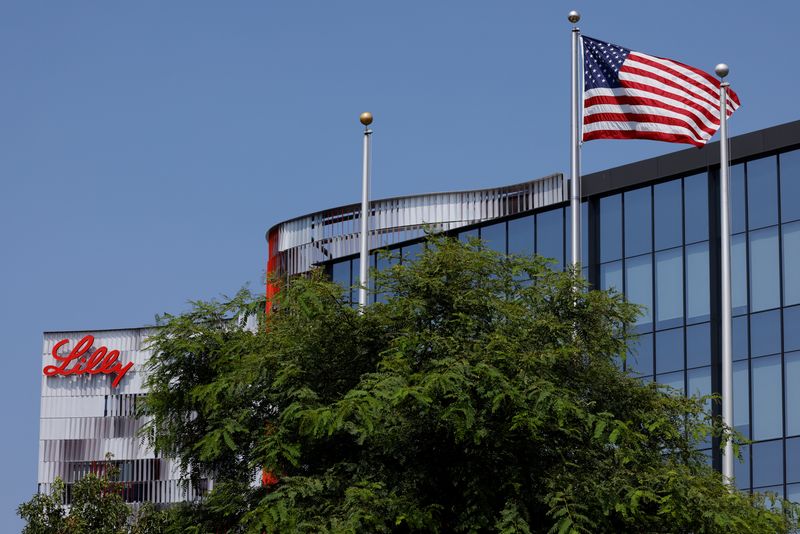Eli Lilly's weight-loss drug misses Wall Street expectations, shares tumble
By Bhanvi Satija and Christy Santhosh
(Reuters) -Eli Lilly fell short of Wall Street sales estimates for its weight-loss and diabetes drugs on Wednesday, hit by a decrease in U.S. wholesale inventory and sending its shares down more than 10% premarket.
U.S. sales of Mounjaro and Zepbound decreased by mid-single digits due to the inventory changes, the company said.
The company delayed plans to advertise weight-loss drug Zepbound and held back on international launches to focus on increasing inventory levels in the U.S., CEO David Ricks told CNBC.
"There is an excess supply...but we haven't been stimulating demand the way we had originally planned," Ricks said.
Lilly's shares are up 55% so far this year and it has become the most valuable healthcare company in the world, as investors bet on the success of the weight-loss drug.
Quarterly sales of diabetes treatment Mounjaro came in at $3.11 billion, while those of Zepbound were $1.26 billion, which Lilly said reflected continued strong demand.
Lilly has invested billions of dollars to expand production of Mounjaro and Zepbound, both known chemically as tirzepatide, including about $7 billion in its Indiana site and facilities in Ireland. The drug is sold under the brand name Mounjaro for both diabetes and weight-loss outside of the U.S.
Analysts had on average predicted sales of $4.20 billion for Mounjaro and $1.69 billion for Zepbound for the quarter. They expect the drugs to make a combined $19 billion this year.
Lilly also trimmed the upper end of its full-year sales forecast by $600 million to $46 billion. It maintained the lower end at $45.4 billion.
It also cut its annual adjusted profit forecast to $13.02 to $13.52 per share, compared to prior expectations of $16.10 to $16.60, citing acquisition charges in the third quarter.
The previously disclosed $2.8 billion acquisition-related charge and higher manufacturing costs also led to a third-quarter profit miss.
Lilly and Danish rival Novo Nordisk (NYSE:NVO ) are racing to increase capacity and meet unprecedented demand for their popular weight-loss drugs, a market that some analysts estimate could reach $150 billion in revenue by the next decade.
In August, rival Novo had trimmed its full-year profit forecast and reported a rare miss on quarterly sales of its weight-loss drug Wegovy. Analysts expect the two companies will likely split the U.S. market roughly 50-50 by the end of 2024.
Source: Investing.com
